Are you searching for the missing puzzle piece to complete your family picture?
Look no further than the Docker dog breed, a delightful combination of charm and loyalty.
Imagine a companion who is not only your best friend but also adapts effortlessly to any situation.
With their unique crossbreeding of Dachshunds and Cocker Spaniels, Dockers possess an intriguing mix of traits that make them a perfect fit for various living environments.
But that’s just the beginning!
There’s so much more to discover about the Docker’s information and characteristics, from their appearance and temperament to their compatibility with children and other pets.
So, let’s embark on this journey together and unlock the captivating world of Dockers.
Key Takeaways
- Docker dogs are a mixed breed resulting from the cross between Dachshund and Cocker Spaniel breeds.
- Dockers are friendly, sweet-natured, and enjoy spending time with their families.
- Dockers can inherit health issues like hip dysplasia, elbow dysplasia, and eye problems from their parent breeds.
- When choosing a dog for an apartment, prioritize qualities like being quiet, low-energy, calm indoors, and exhibiting good manners when living in close proximity to other residents.
Origin and Size
The origin of the Docker breed can be traced back to the intentional crossbreeding of Dachshunds and Cocker Spaniels in the late 1990s. This unique combination of parent breeds resulted in a mixed breed dog that exhibits traits from both sides.
Dockers can vary in size, ranging from small to medium. The size of a Docker is determined by the size of its parent breeds. The Dachshund is a small breed, while the Cocker Spaniel is a medium-sized breed. When these two breeds are crossed, the resulting Docker can fall within the size range of either parent or somewhere in between.
It’s important to note that the size of a Docker can also be influenced by other factors such as genetics and individual variation.
Appearance and Temperament
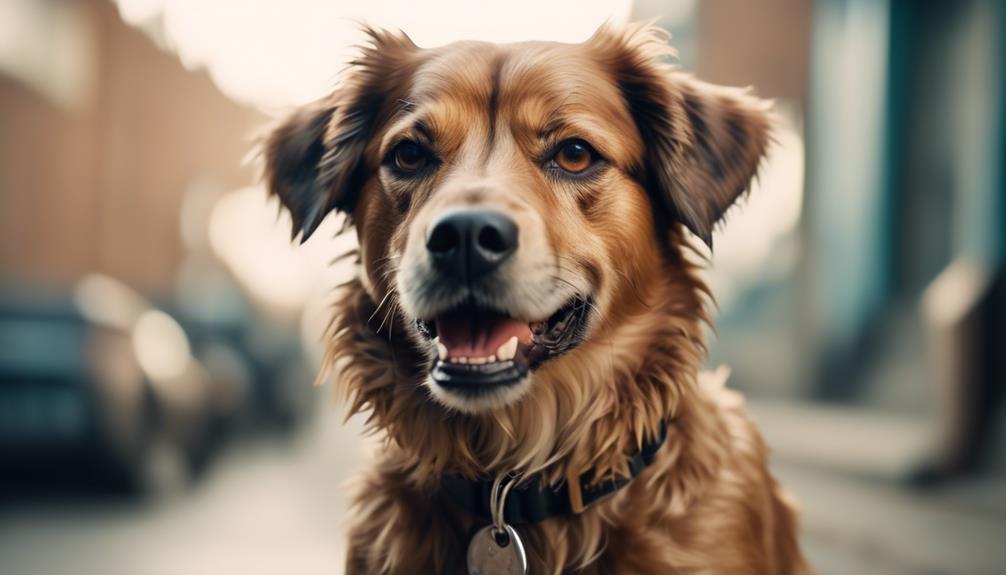
Dockers have a distinctive appearance and a temperament that makes them a beloved choice for many dog owners. Here are some key characteristics of their appearance and temperament:
- Appearance:
- Dockers come in a variety of colors, including red, black, brown, or tan, with the possibility of a second color mixed in.
- Their coats can be short and wiry or soft and silky, depending on the traits inherited from their parent breeds.
- Dockers have a unique blend of features from both Dachshunds and Cocker Spaniels, resulting in an endearing and charming appearance.
- Temperament:
- Dockers are known for being friendly and sweet-natured, making them excellent family pets.
- They enjoy spending time with their families and are affectionate towards their loved ones.
- Dockers are loyal and devoted companions, forming strong bonds with their owners.
With their appealing appearance and lovable temperament, it’s no wonder that Dockers are a popular choice among dog owners.
Health Concerns and Adaptability
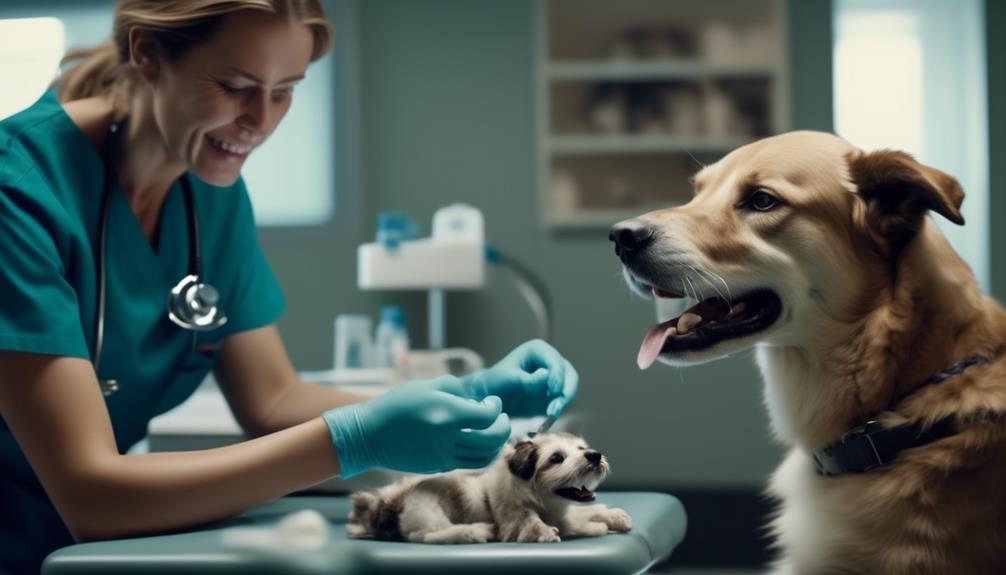
Moving on to the topic of health concerns and adaptability, it’s important to understand the specific considerations and factors that come into play when owning a Docker.
Dockers can inherit health issues from their parent breeds, such as hip dysplasia, elbow dysplasia, and eye problems. Being aware of these potential health concerns allows for proactive care and early detection.
In terms of adaptability, Dockers can thrive in apartment living, but size alone shouldn’t be the sole determinant. Prioritizing qualities like being quiet, low-energy, and calm indoors is crucial, especially when living in close proximity to other residents.
Understanding the energy levels and space requirements of different breeds is also important when choosing a Docker for an apartment.
Factors to Consider for Apartment Living

When considering apartment living, it’s essential to take into account various factors to ensure the compatibility and well-being of a Docker dog. These factors include:
- Space Requirements:
- Docker dogs range from small to medium in size, making them suitable for apartment living.
- However, it’s important to consider their activity levels and exercise needs.
- Providing regular walks and active play sessions is crucial to keep them mentally and physically stimulated.
- Noise Sensitivity:
- Dockers are generally known to be quiet and calm indoors.
- However, it’s important to consider their sensitivity to noise and chaos.
- Living in close proximity to other residents may require a Docker that can handle a potentially noisy environment.
- Behavioral Compatibility:
- Dockers are friendly and sweet-natured, making them well-suited for apartment living.
- Prioritizing qualities such as being low-energy, calm indoors, and exhibiting good manners is important when living in close quarters.
Considering these factors will help ensure a harmonious living environment for both you and your Docker dog in an apartment setting.
Docker Characteristics and Personality
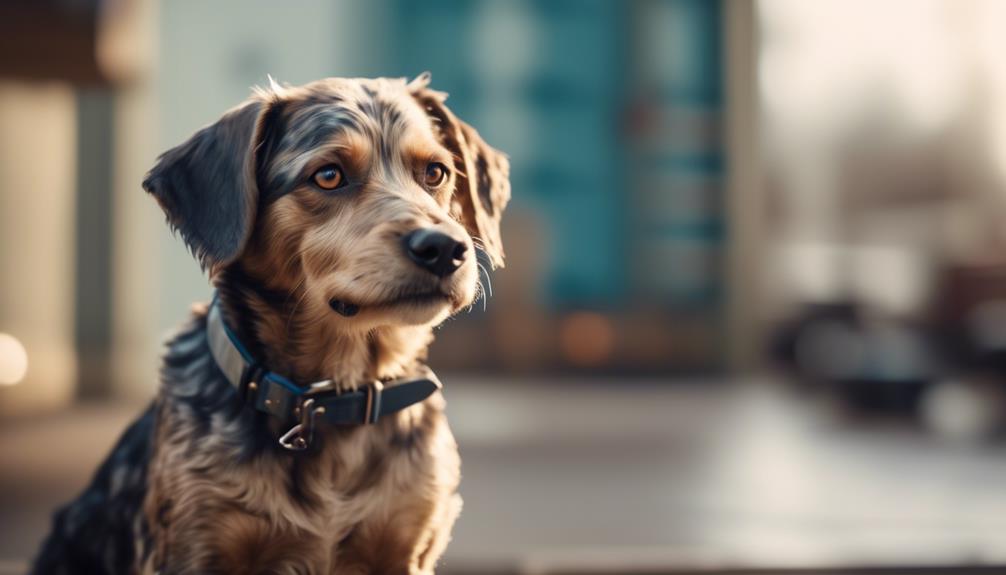
To further understand the Docker breed, it’s important to explore their unique characteristics and personality traits.
Dockers are affectionate and known for their unconditional love and unwavering loyalty towards their families. They make excellent family pets and enjoy spending time with their loved ones.
Dockers are friendly and enjoy being affectionate towards their family members. They’re also known to be loyal and devoted companions.
When it comes to behavioral characteristics, Dockers with low prey drive are less likely to chase and attack other animals. Some breeds have a tendency to bark or howl more frequently than others, while certain breeds are more prone to wandering and chasing after anything that catches their interest.
Energy levels vary among different breeds, with some being high-energy and others being low-energy. Dogs with high intensity may have more vigor and require more training.
Affectionate With Family

Dockers are known for their affectionate nature and their strong bond with their family members. They make excellent family pets and enjoy spending time with their loved ones. Here are three reasons why Dockers are so affectionate with their families:
- Dockers have a strong sense of loyalty. They’re devoted companions who’ll always be by your side, offering their unconditional love and support. Their loyalty creates a deep emotional connection with their family members.
- Dockers thrive on human interaction. They enjoy being part of the family and are happiest when they’re included in all activities. Their need for companionship drives them to be affectionate and seek constant attention from their loved ones.
- Dockers are known for their friendly and sweet-natured temperament. They’re naturally loving and enjoy showering their family members with affection. Their gentle and kind nature makes them excellent family pets, especially for households with children.
Behavioral Characteristics
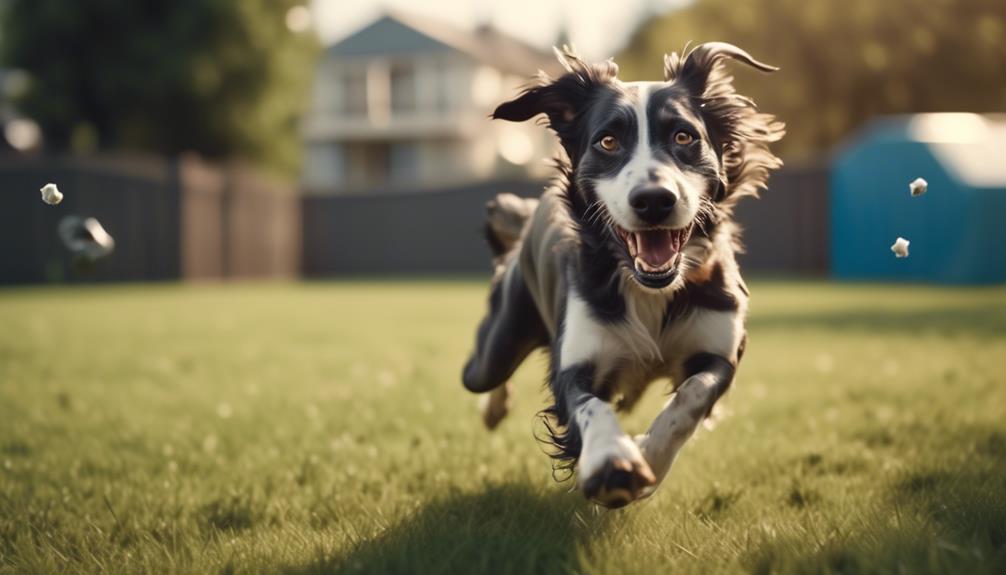
One important aspect to consider when understanding the behavioral characteristics of Dockers is their tendency towards certain behaviors. Dockers, like any other dog breed, exhibit a range of behaviors that can be influenced by various factors such as genetics, training, and socialization. To give you a better understanding of the behavioral characteristics of Dockers, here is a table summarizing some common behaviors observed in this breed:
| Behavior | Description |
|---|---|
| Prey Drive | Dockers with low prey drive are less likely to chase animals |
| Barking | Certain breeds may have a tendency to bark or howl frequently |
| Wandering | Some breeds are more prone to wandering and chasing objects |
| Energy Levels | Energy levels can vary among different breeds |
| Intensity | Dogs with high intensity may require more training |
Understanding these behavioral characteristics can help you better meet the needs of your Docker and ensure a harmonious relationship between you and your furry companion.
Docker Health Concerns

Docker Health Concerns encompass a range of potential issues that owners should be aware of to ensure the well-being of their furry companions. It’s important to understand the health risks associated with the Docker breed in order to provide appropriate care and treatment. Here are some key health concerns to consider:
- Intervertebral Disk Disease: This condition affects the spinal discs, causing pain and paralysis. It can be managed with medication, physical therapy, and, in severe cases, surgery.
- Diabetes: Dockers can be prone to diabetes, which leads to high blood sugar levels, excessive thirst, and weight loss. Close monitoring of their diet and regular veterinary check-ups are essential.
- Urinary Tract Issues: Infections, bladder stones, and kidney damage can occur in Dockers. Prompt diagnosis and treatment are crucial to prevent complications.
- Allergies: Dockers may develop allergies, resulting in itching, rashes, and digestive issues. Identifying and avoiding allergens, along with appropriate medication, can help manage these issues.
- Hypothyroidism: This condition causes weight gain, lethargy, and skin problems. Regular thyroid hormone monitoring and medication can help manage the condition.
Being aware of these health concerns and working closely with a veterinarian can help ensure the overall well-being of your Docker.
Docker Care and Feeding
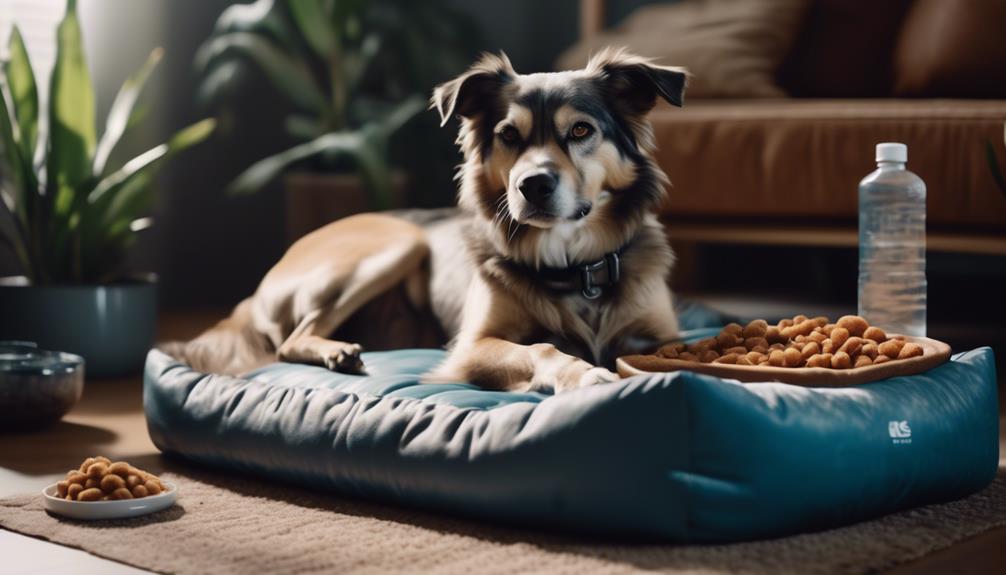
To properly care for your Docker and ensure their optimal health and well-being, it’s essential to understand the recommended care and feeding practices for this unique mixed breed.
Docker care involves several key aspects. First, regular veterinary checkups are crucial for the early detection of any health concerns.
Daily exercise in the form of walks and active play sessions is necessary to keep your Docker physically fit.
Additionally, it’s important to check and clean their ears daily for debris and pests, trim their nails once or twice a month, and brush their teeth daily to maintain good oral health.
When it comes to feeding, stick to a regular schedule and avoid overfeeding to prevent weight gain. Consult a veterinarian for personalized recommendations based on your Docker’s weight, energy levels, and overall health.
Docker Coat Color and Grooming
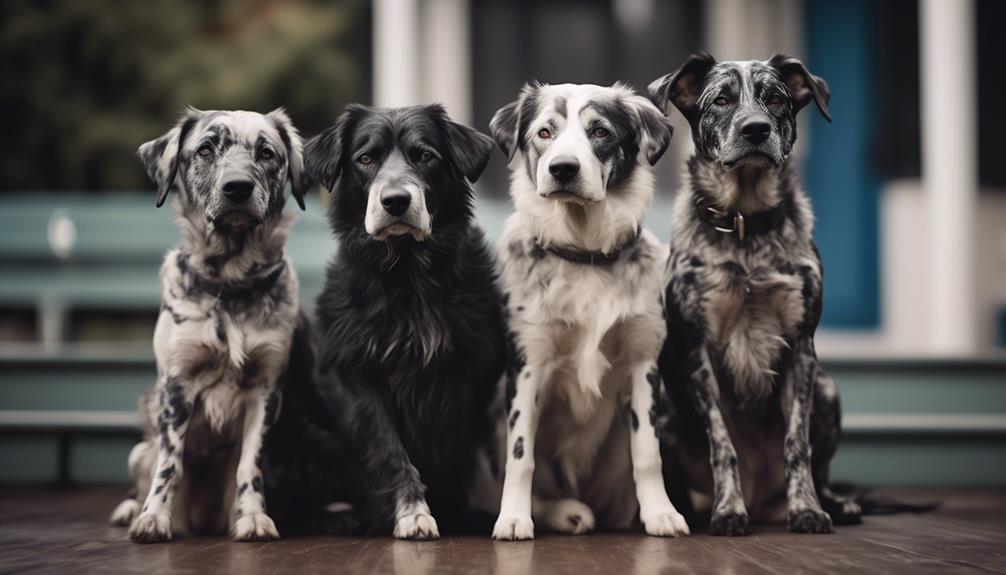
The coat color and grooming of Dockers, a mixed breed resulting from a cross between Dachshunds and Cocker Spaniels, is a significant aspect to consider when caring for this unique canine.
The Dockers’ coats are a mix of their Dachshund and Cocker Spaniel parents’ coats and colors. They can come in main colors like red, black, brown, or tan, with the possibility of a second color mixed in. The coats can be short and wiry or soft and silky, depending on the traits inherited from their parents.
Weekly brushing is usually sufficient, but more Cocker Spaniel-like coats may require daily brushing. In colder climates, additional winter clothing may be necessary, while sunscreen should be applied in the summer months. Proper grooming and care contribute to a Dockers’ overall well-being and appearance, making them an exceptional canine companion.
- Dockers’ coat color variations evoke a sense of visual delight, with their rich hues and contrasting shades.
- Grooming Dockers is a gratifying experience that strengthens the bond between you and your furry friend.
- By investing time and effort into their coat care, you can enhance the Dockers’ natural beauty and ensure they look their best in any setting.
Docker History and Compatibility

Continuing our exploration of Docker breed information, let’s now turn our attention to the fascinating history and compatibility of this unique mixed breed canine.
Docker dogs were intentionally bred as a designer breed in the late 1990s, with the purpose of being lovable, furry family members rather than hunting dogs. Although not officially recognized as a breed by most kennel clubs, Dockers have gained popularity for their endearing appearance and friendly disposition.
They’re adaptable to various living environments, including apartments, and thrive in families, enjoying social interaction. Dockers make good watchdogs due to their alertness and playful nature.
When it comes to compatibility, Dockers generally do well with children, but supervision is necessary. Introducing them to other pets slowly and calmly, along with early socialization, helps ensure better compatibility.
Docker Highlights
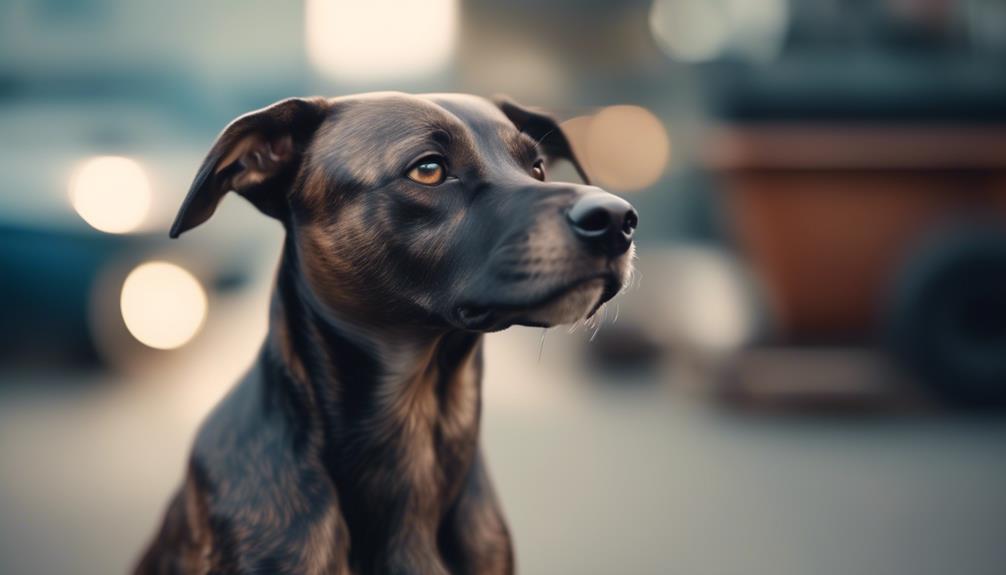
Docker dogs exhibit a unique combination of qualities derived from both Dachshunds and Cocker Spaniels, making them a versatile and lovable breed.
Here are some highlights about Dockers that will surely evoke an emotional response in you:
- Adaptable Size: Dockers come in different sizes, making them suitable for various living environments. Whether you have a small apartment or a spacious house, there’s a Docker that fits perfectly into your home.
- Beautiful Appearance: With a mix of both parent breeds’ coats, Dockers display a wide range of colors, including red, black, brown, or tan. Their coats can be short and wiry or soft and silky, adding to their unique charm.
- Loving and Playful: Dockers thrive in families and enjoy social interaction. They dislike being left alone for long periods and are known for their playful nature. They’ll bring joy and companionship into your life.
With their alertness and playfulness, Dockers also make excellent watchdogs. Their unique blend of qualities truly makes them a remarkable and delightful breed.
Docker Children and Other Pets
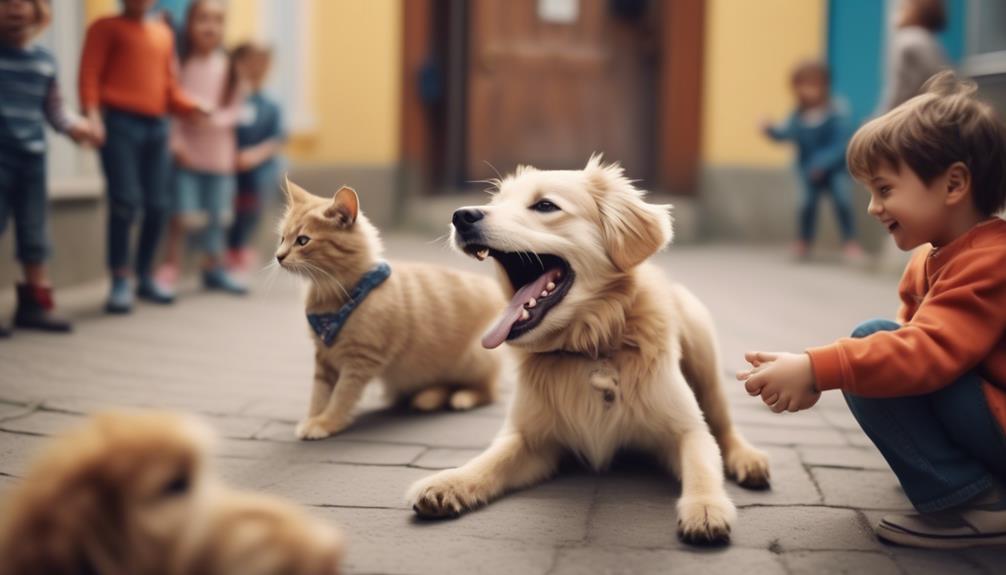
When introducing Dockers to children and other pets, it’s important to proceed slowly and calmly to ensure compatibility and prevent any potential incidents. Early socialization plays a crucial role in helping Dockers adapt to other pets.
Dockers generally do well with children, but supervision is necessary to ensure their interactions are safe and positive.
In multi-dog households, Dockers may exhibit leadership tendencies if they inherit the Dachshund parent’s personality. When introducing new dogs, it’s important to observe positive signs such as nose-to-butt interaction and tail wagging. It’s essential to be cautious and monitor their interactions closely to prevent any conflicts.
Adoption and Rescue Options

One option for obtaining a Docker is through adoption and rescue organizations, which provide an opportunity to give a loving home to a Docker in need. These organizations play a crucial role in saving and rehabilitating abandoned or neglected Dockers, giving them a chance at a better life.
When you choose to adopt a Docker, you not only save a life but also experience the joy of bringing a new family member into your home. Here are three reasons why adoption and rescue options are worth considering:
- You’re giving a second chance to a Docker in need, providing them with love, care, and a safe environment.
- Adopting a Docker from a rescue organization is a more affordable option compared to buying a puppy from a breeder.
- By adopting, you’re helping to reduce the number of Dockers in shelters and giving other dogs a chance to find their forever homes.
Consider adoption and rescue options to make a positive impact on a Docker’s life and experience the fulfillment of providing a loving home.
Frequently Asked Questions
What Is the Average Lifespan of a Docker Dog?
The average lifespan of a Docker dog is around 10 to 15 years. However, it’s important to note that individual lifespans can vary depending on factors such as genetics, overall health, and quality of care provided.
Are Dockers Prone to Separation Anxiety?
Yes, Dockers are prone to separation anxiety. They form strong bonds with their families and can become distressed when left alone for long periods. Proper training and gradually increasing alone time can help alleviate this issue.
Do Dockers Require a Lot of Exercise?
Dockers require a moderate amount of exercise to stay healthy and happy. Regular walks and active play sessions will keep them physically and mentally stimulated. However, their exercise needs may vary based on their individual energy levels and age.
Are Dockers Good With Other Dogs?
Yes, dockers can be good with other dogs. Early socialization and calm introductions are important. They may exhibit leadership tendencies in multi-dog homes if the Dachshund parent’s personality prevails. Observe positive signs during introductions.
Can Dockers Be Trained Easily?
Yes, dockers can be trained easily. Their intelligence and willingness to please make them quick learners. With consistent and positive reinforcement, you’ll have a well-trained docker in no time.
What are the similarities and differences between Docker and Chinese Shar-Pei dog breeds?
Docker and Chinese Shar-Pei breed share resilience and adaptability. However, the Chinese Shar-Pei breed, known for its distinctive wrinkled skin and “hippopotamus” head shape, originated in China and has a unique loyalty to its family. On the other hand, Docker is a platform for delivering software in containers. For more chinese sharpei breed info, one can consider their temperament and care requirements.
Conclusion
So, if you’re considering adding a new furry companion to your family, the Docker dog breed could be the perfect choice for you.
With their friendly and adaptable nature, Dockers make great companions for any living environment, including apartments.
Their unique appearance and lovable personalities are sure to bring joy to your household.
Remember to provide them with proper care, including exercise and regular veterinary check-ups, to ensure they live a healthy and happy life.
So, why wait? Start your journey with a Docker today!




